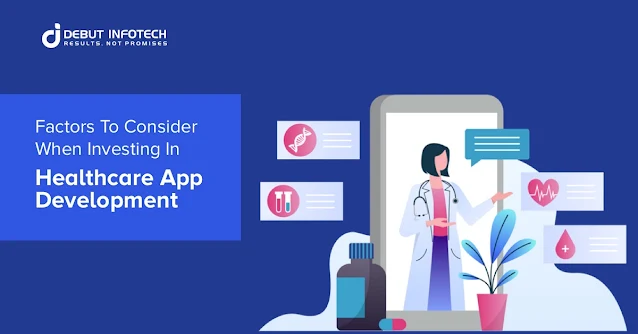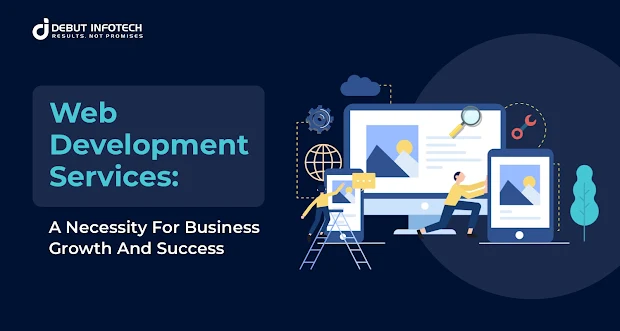Here, we'll look at the most common types of web application development.
1. Single-Page Apps
Single-page apps (SPAs) load all information dynamically on a single web page so that users do not have to refresh browsers repeatedly. SPAs use the latest technologies like JavaScript, Ajax, and JSON to make the user experience more quick and interesting. These apps are especially helpful for complex user interfaces that require multiple interactions, like those found in online markets, social media platforms, and streaming services.
2. Progressive Web Applications
Progressive Web Applications (PWAs) give users a web experience similar to a native app. These apps, like native apps, can be downloaded and used on a user's device. PWAs can be cached on the user's device for offline access and are developed using web technologies including HTML, CSS, and JavaScript. PWAs offer rapid loading times, push notifications, and other native app-like capabilities.
3. E-commerce Applications
E-commerce web applications allow users to purchase and sell goods and services online. Common characteristics of e-commerce platforms include product catalogs, shopping carts, payment gateways, order management, and order tracking. E-commerce applications can be developed using various technologies, including open-source platforms such as WooCommerce, Shopify, Magento, etc.
Professional web app developers can assist you in developing unique web applications to match your specific business requirements. When hiring developers for your next project, evaluate their technical talents, communication ability, and general fit with your team and corporate culture.
4. Content Management System (CMS)
CMSs are web apps that let people create, manage, and share digital content like articles, blog posts, and multimedia files without having knowledge of coding. Most CMS programs store information in a database and have an easy-to-use interface for managing content. Commonly used CMS tools include Joomla, WordPress, and Drupal.
5. Static Websites
Static websites are web applications that do not require server processing. All content is rendered in advance and saved in HTML, CSS, and JavaScript files, which are then delivered to the user's browser. Static websites are fast, secure, and affordable because no server-side processing is required. They are commonly used for personal journals, portfolio websites, and small business websites.
6. Serverless Apps
Serverless apps don't require the developer to handle or set up any servers. Instead, a cloud services company like Amazon Web Services (AWS) or Microsoft Azure hosts the application's functionality. Serverless apps are cheap because the creator only has to pay for the resources the app uses. They are also scalable because the cloud service gives the application more resources as its use grows.
Impact of Web Development on Your Business
Web application development has become more popular in recent years as businesses and groups try to make digital solutions that are easy to use, accessible, and responsive. Some things that show how web application development affects a business are listed below:
1. Increased Brand Visibility and Organic Reach
A well-designed website acts as a virtual office, making potential clients available 24 hours and seven days a week. Businesses can access a global audience through web development, breaking down geographical borders and broadening their market reach. Companies can exhibit their products or services, communicate with customers, and develop brand awareness with an appealing and user-friendly website. This improved visibility increases the likelihood of drawing new clients and generating leads.
2. Builds Trust & Reputation
The success of a web platform is greatly influenced by the user experience (UX). Web development works on making interfaces that are easy to use and understand, so that browsing is smooth A website that loads quickly, is responsive, and has simple navigation improves user experience and entices visitors to stay longer. Increased engagement, enhanced customer retention, and higher conversion rates are all results of good user experiences and all help businesses grow.
4. Competitive Advantage and Business Reliability
A properly designed website or web app can greatly contribute to a business's reputation and perceived worth in today's competitive landscape. It inspires trust in potential customers by reflecting a company's dedication to quality and professionalism. A visually beautiful web platform with relevant material and testimonials can help a company stand out from the crowd and develop a strong brand image. It is an effective tool for demonstrating expertise, sharing success stories, and establishing authority in the business.
5. Lead Generation
A web app can greatly help you generate leads for your business, no matter if you are advertising online or offline. Use your web app or website to offer freebies and tempting offers to boost lead generation and create a prospect list. How many people will make a purchase after seeing your ad for the first time? You may not get as many customers as you expect, but the important thing is to attract them to your marketing funnel.
The funnel generates leads and then follows up to close sales. Your web app is the ideal tool to help you achieve your goal by automating most of the marketing process. This improves efficiency and productivity.
6. Accelerates Brand Growth
You will be able to assess and analyze the performance of your website/web app once you have one. You can track conversion rates, engagement, and other analytics to see where you can improve. Finally, by thoroughly reviewing and enhancing your internet strategies, you will increase your revenue and ROI. A website is a significant asset to any modern business; make good use of it to help your company develop.
Conclusion
Custom software development is highly significant when it comes to meeting the client's business needs. Custom app development companies must understand the app's features, aesthetics, and architecture to ensure business success. Thus, by clearly defining their needs and goals, enterprises can work with app developers to create customized web applications that meet their needs and help them succeed.
A reliable mobile app development company can assist you in achieving your goals, whether you require a basic web app or an enterprise-level application. Hire a web app development company to save time and money to meet project quality. To ensure the success of your web app development project, hire skilled web app developers proficient in modern programming languages. Debut Infotech, a reliable and proficient company, offers custom web application development services. We are unmatched in quality, innovation, and client satisfaction. We prioritize client needs and goals throughout the development process to exceed expectations. If you also want to invest in web app development, Debut Infotech would be your perfect partner.









